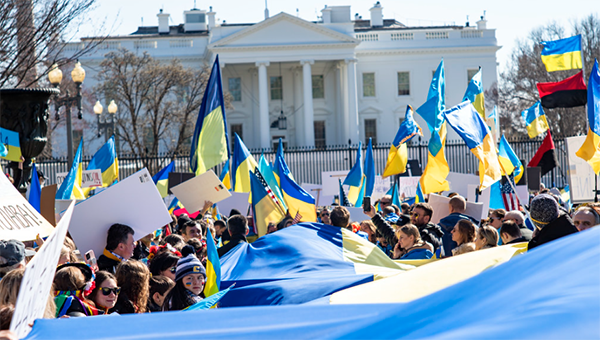Individual Counseling Insights brought to you by California Psychotherapeutic Resources, Inc.
The images we see daily are absolutely heartbreaking. Many people are reeling from the news out of Ukraine and the descriptions of a war they thought could never happen. But it is happening, and it’s a delicate task to balance empathy with anxiety all the while avoiding psychological trauma. Writing for the American Psychological Association website, Zara Abrams says “It’s normal to feel distressed about what’s going on and to closely follow the conflict. While staying informed is important, research shows that overexposure to media during a crisis is linked with worse mental and physical health down the line.”

You may want to take whatever action you can to help, including donating to the various relief funds available to help refugees. But it’s also important to take care of yourself, maintaining your own health so that you’ll continue to be able to help in the future. With that in mind, take a page out of Abrams’ article in which she cites evidence-based advice on avoiding the trauma of war from afar.
“Keep things in perspective.” There are different ways to keep things in perspective, and one way is to understand the historical context of a problem. Anxiety can result from a feeling that a problem appeared out of nowhere. Ukraine has long struggled with its effort to be independent, and understanding the history of that struggle may help.
“Exert control where you can.” War can bring about a sense that the world is spinning out of control. To counteract that feeling, take control of yourself — from your emotions to the ways in which you spend your free time. Decide what you want to do and then do it.
“Limit your media exposure.” This is good advice for dealing with all the traumatic events of modern-day life. Although the pandemic is suddenly out of the spotlight, its effects are still quite real. The news can be overwhelming, so make a point of limiting your exposure to media.
“Seek news from credible sources.” Speaking of media, make sure to get your information from credible and unbiased sources. That means avoiding social media and the wild rantings you often find there.
“Support the people of Ukraine.” Although you need to take care of your own mental health, remember that empathy is a good thing. It’s normal and uplifting to help others. Now is the time to support well-established humanitarian agencies. You might also try to see if there is a Ukrainian community near you. They may have a more direct avenue to supporting Ukrainians back home.